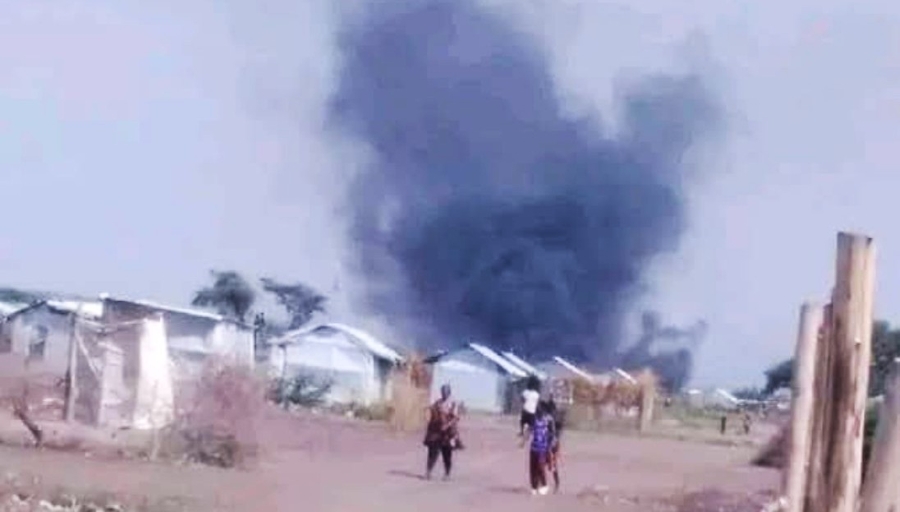Deaths reported as chaos erupt in Kenya’s Refugees’ Camp, pitting the police against fugitives.
Chaos ensued at one of the largest refugee camps in Kenya, which is located in the Northern parts of the East African country, with reports claiming several deaths and injuries from the clashes.
The Agence France Presse (AFP) said humanitarian sources reported at least one death, following months of increased tensions over aid cuts.
Hosting more than 300,000 people, the Kakuma refugee camp is the second-largest facility in Kenya.
Refugees camped at Kakuma hail from mostly Burundi, Somalia, South Sudan and Uganda.
A Hungry man is an Angry man
Humanitarian groups have grappled for months with rising tensions as rations have been reduced following massive cuts to aid from the United States and other donors.
There have been reports of alleged police brutality and extrajudicial killings by Kenyan police officers.
News sources in Juba claim that South Sudanese men are the main targets and that their youths have been dying under mysterious circumstances.
Observers have expressed concerns about refugee safety and accountability within the camp.
“Our boys are being targeted. The police are using excessive force. We came here to escape war, only to face death in a supposed safe place,” wept a South Sudanese mother whose son died earlier this month after an encounter with law enforcement.

However, names and numbers of the deceased have not yet been officially confirmed, but unverified reports suggest between 3 and 5 South Sudanese refugees have lost their lives in the last four weeks in incidents involving police intervention.
“We feel like we are being hunted,” said a 24-year-old refugee who asked to remain anonymous. “They don’t ask questions anymore. They come at night, break into homes, and beat people up.”
Local activists and civil society groups, including Kakuma Refugee Rights Watch, have issued calls for an independent investigation.
“This is not just about police misconduct. It’s about a broken system where refugees are left voiceless, and justice feels unreachable,” said Nyibol Deng, a South Sudanese human rights advocate based in Nairobi.
Despite growing tensions, neither the United Nations High Commissioner for Refugees nor the Kenyan government has released a full statement addressing the claims.
Community elders are urging both the Kenyan authorities and refugee leaders to de-escalate tensions, while demanding accountability.
“We understand security is important,” said Pastor Peter Malok, a religious leader in the camp, “but peace doesn’t come by killing people. We must sit down, understand each other, and uphold the law.”

